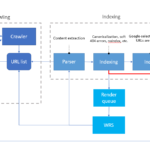ALCOA vs. ALCOA++: Understanding Data Integrity in the Pharmaceutical Industry
By :Dr. Dhriti Tupe, GxP Expert ®
Data integrity is the backbone of compliance and quality in the pharmaceutical industry, ensuring that all data is accurate, reliable, and secure. Over the years, the concept of ALCOA has served as a guideline for maintaining data integrity. However, as the industry evolves with new technologies and stringent regulatory expectations, ALCOA has expanded to ALCOA++ to address these growing needs.
What is ALCOA?
ALCOA is an acronym representing the core principles of data integrity:
– Attributable: Every piece of data must be linked to its source, be it an individual, a machine, or a system.
– Legible: The data should be clear, readable, and understandable, ensuring future access is possible.
– Contemporaneous: Data must be recorded at the time the activity is performed.
– Original: Original records (or verified true copies) should be maintained.
– Accurate: The data should be error-free, precise, and truthful.
These principles form the foundation of data integrity, ensuring that all records and data used in the manufacturing and development of pharmaceutical products meet regulatory standards.
The Transition to ALCOA++
With increasing regulatory focus on data integrity and the advent of digital systems, ALCOA was expanded into ALCOA++, which incorporates additional factors to strengthen the framework for modern-day data governance:
– Complete: All data must be present and free from omissions. This includes raw data, metadata, and contextual information necessary for interpreting results.
– Consistent: The data should follow a chronological sequence and match the original records without discrepancies.
– Enduring: Data should be preserved for a specified period, and it should remain accessible over the product’s lifecycle.
– Available: Data must be easily accessible when required for audits, investigations, or reviews.
ALCOA++ acknowledges the complexities introduced by automated systems, ensuring data is not only reliable but also appropriately governed and controlled throughout its lifecycle.
Importance in the Pharmaceutical Industry
In an industry where patient safety is paramount, maintaining data integrity is critical for the following reasons:
1. Regulatory Compliance:
Authorities like the FDA, MHRA, and EMA are increasingly focusing on data integrity to ensure pharmaceutical companies comply with Good Manufacturing Practices (GMP) and ensure public safety.
2. Quality Assurance:
Data that adheres to ALCOA++ principles ensures product quality, leading to fewer errors and deviations in the manufacturing process.
3. Traceability:
For investigations and audits, ALCOA++ helps maintain traceable and auditable data trails, ensuring accountability at every stage of product development.
4. Risk Mitigation:
Failing to meet data integrity standards can lead to product recalls, compliance issues, and even legal consequences, making the ALCOA++ framework a powerful risk management tool.
How ALCOA++ Works in Pharmaceuticals
In practical terms, implementing ALCOA++ means pharmaceutical companies must establish robust systems for data generation, handling, storage, and retrieval. This can include:
– Utilizing electronic data capture systems that ensure accuracy and real-time data entry.
– Maintaining secure audit trails for any changes made to records.
– Training staff to understand the importance of following ALCOA++ principles when documenting, reviewing, or reporting data.
Companies must also invest in regular internal audits and inspections to verify that their systems are compliant with ALCOA++ standards.
Benefits of ALCOA++
The adoption of ALCOA++ in the pharmaceutical industry brings numerous advantages:
1. Enhanced Compliance:
Meeting ALCOA++ standards means companies are more likely to pass regulatory inspections with minimal risk of data integrity violations.
2. Improved Efficiency:
A focus on accurate, real-time data entry and seamless data management processes reduces the time spent correcting errors or locating data during audits.
3. Increased Confidence: Customers, regulatory agencies, and stakeholders are more likely to trust companies that demonstrate a commitment to robust data integrity practices.
4. Data Security: ALCOA++ helps protect against data loss or tampering, especially in digital environments where the risk of cyber threats and data corruption is higher.
Summary
ALCOA++ has become a cornerstone for maintaining data integrity in the pharmaceutical industry. By expanding the traditional ALCOA framework, ALCOA++ ensures that pharmaceutical companies not only meet current regulatory requirements but also protect patient safety, enhance product quality, and maintain operational excellence. The adoption of ALCOA++ principles provides a robust foundation for data governance, empowering companies to confidently navigate the complexities of modern pharmaceutical development and manufacturing while minimizing risks and maximizing compliance.
Written By :
🔸Quality Compliance Lead🔸Mentor🏆🔸Ph.D.🥇🔸 MBA🔸LLS- MB, GB, BB🔸LSS-Minitab🔸LSS Expert-Harvard Publishing Case Studies🔸LLS-Healthcare🔸CQA and IRCA Certified ISO 9001:2015 Lead Auditor🔸GxP Consulting Adviser Pfizer









